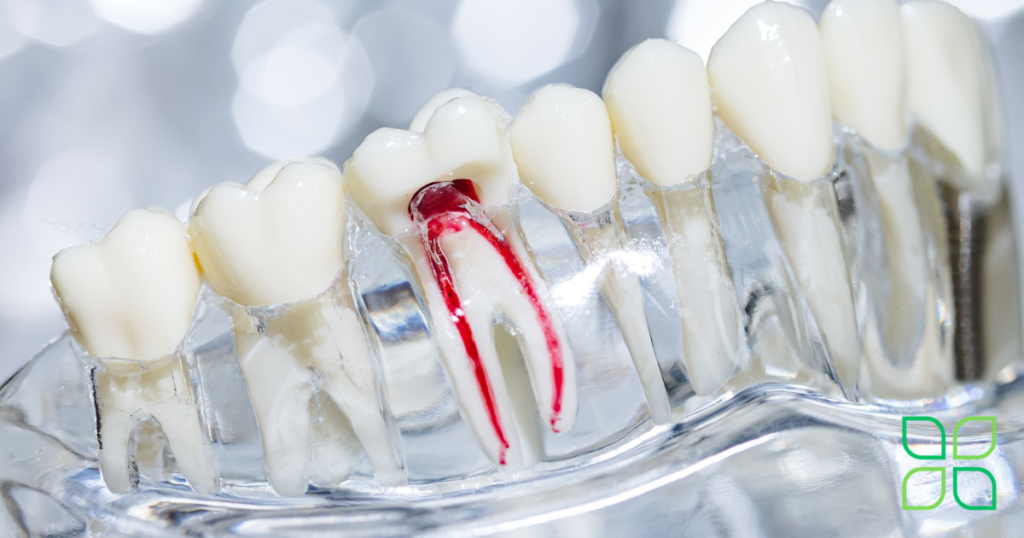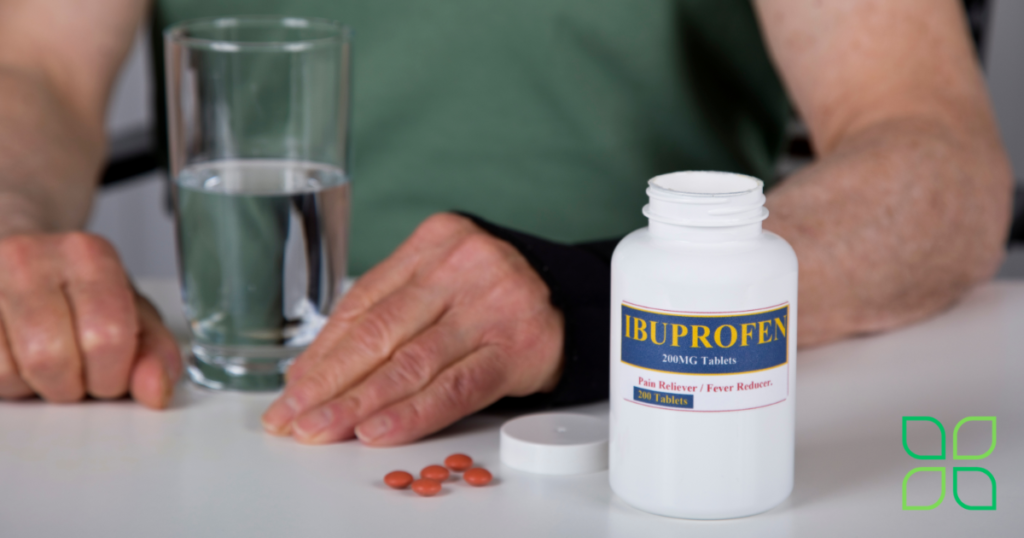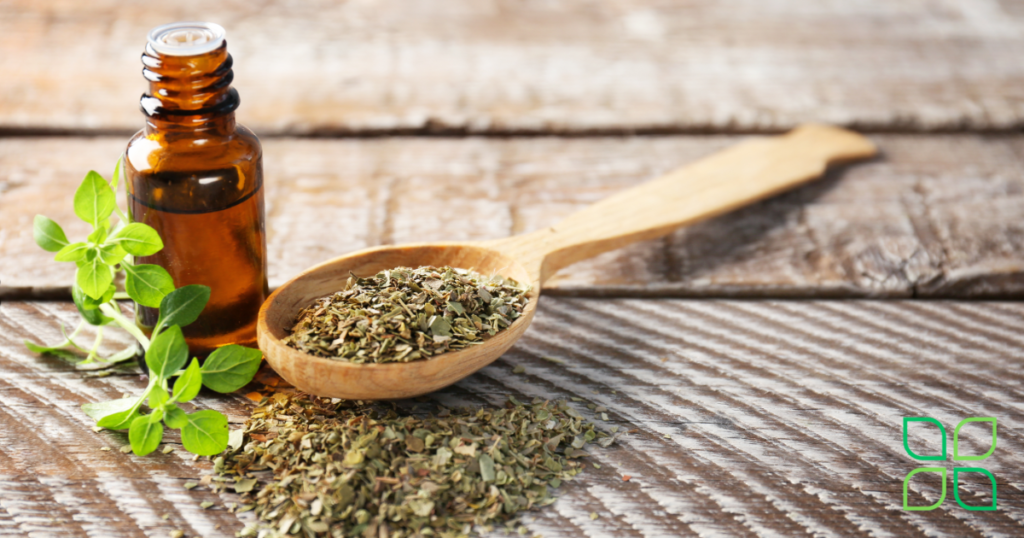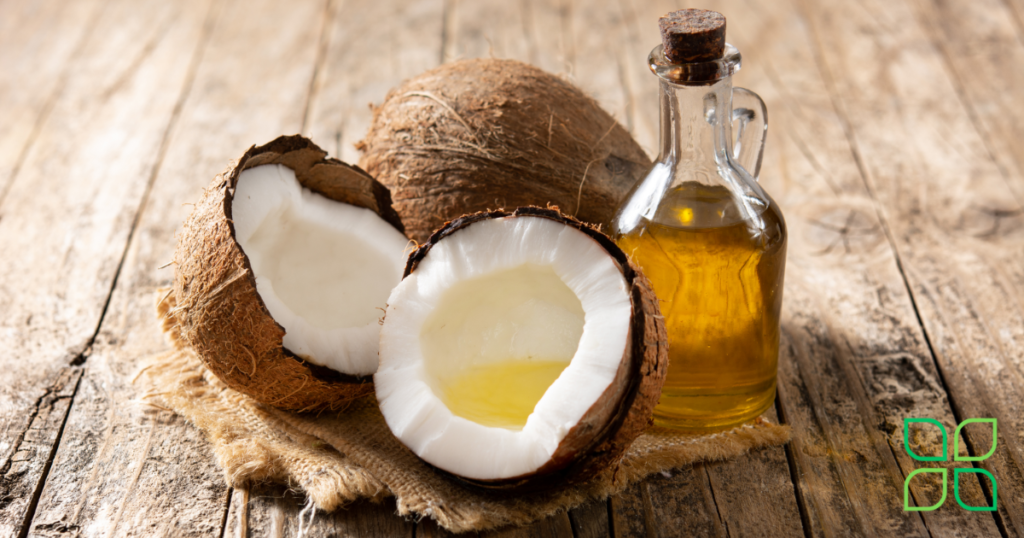
Preventing Root Canal Pain: Conventional and Natural Home Remedies
Root canals are a common dental procedure that involves removing infected or damaged tissue from a tooth’s root canal. In this blog post, we will discuss what a root canal is, why it may be necessary, and how to prevent root canal pain with conventional and non-conventional natural home remedies.
A root canal is performed when the innermost part of a tooth, known as the root canal, becomes infected or damaged. This can occur due to deep cavities, fractures, or trauma to the tooth. The root canal contains nerves, blood vessels, and other tissues that keep the tooth healthy. When these tissues become infected or damaged, a root canal is necessary to remove them and restore the tooth’s health.
There are several signs that indicate you may need a root canal. These include having a large cavity that has not been treated, a fractured tooth, a tooth that has changed color, the presence of a fistula or pimple-like bump on the gum, or experiencing severe tooth pain. Notably, the absence of pain does not necessarily mean a root canal is unnecessary. In some cases, the infection can be so deep that it kills the nerves, resulting in no pain but still requiring treatment.
Understanding the Importance of Professional Diagnosis and Treatment for Root Canal Pain
If you suspect you may need a root canal, it is important to visit a dentist who can properly diagnose and treat the issue. During the initial visit, the dentist will take X-rays to determine the extent of the damage and inform you of the necessary treatment. In some cases, if the infection is severe, you may be prescribed antibiotics to reduce the infection before the root canal procedure can be performed.

The dentist will numb the area during the root canal procedure to ensure your comfort. They will then remove the infected or damaged tissue from the root canal and clean it thoroughly. Afterward, the root canal will be filled with gutta-percha to provide strength and support to the tooth. In most cases, a temporary crown will be placed on the tooth until a permanent crown can be made and fitted.
Following proper oral hygiene practices is important even after a root canal and crown placement. Brushing and flossing regularly will help prevent bacteria from seeping underneath the crown and causing further infection. While root canals and crowns can last many years, they may eventually need replacing.
The cost of a root canal can vary depending on several factors, including whether you see a specialist or a general dentist, your insurance coverage, and your location. Specialist root canals can cost between $1500 and $2000, while general dentist root canals typically range from $600 to $1200. It is recommended to check with your insurance provider or dentist for precise pricing based on your specific circumstances.
Effective Home Remedies for Treating and Preventing Root Canal Pain
Now, let’s explore effective ways to treat and prevent root canal pain. These suggestions should be followed in consultation with your general dentist, who can provide a proper diagnosis and recommend appropriate treatment options.
1. Contact Your General Dentist: If you are experiencing tooth pain, it is crucial to inform your general dentist. They may schedule a consultation to determine if a root canal procedure is necessary. Root canal therapy removes the nerve from the affected tooth, eliminating the pain by cutting off the blood supply to the area.
2. Over-the-Counter Medication: While waiting for your dental appointment, you can manage root canal pain by taking over-the-counter pain relievers such as Advil or Tylenol. These medications can help alleviate the discomfort, although they may not provide immediate relief. It is essential to consult with your dentist before taking any medication.

3. Antibiotics: In some cases, your dentist may prescribe antibiotics to address any infection present in the root canal. These medications help eliminate the infection and reduce pain. It is crucial to follow your dentist’s instructions and complete the entire course of antibiotics to ensure effective treatment.
4. Dental Crown: After the root canal procedure, your dentist may recommend placing a dental crown over the treated tooth. A crown acts as a protective covering, preventing further pain and protecting the tooth from future damage. This step is essential for long-term pain prevention.
5. Warm Salt Water Rinse: Rinsing your mouth with warm, salty water can provide quick tooth pain relief and soothe the affected tooth and gums. This simple home remedy can help reduce inflammation and alleviate discomfort. Mix half a teaspoon of salt in a glass of warm water, rinse your mouth for 30 seconds, and then spit it out. Repeat this process with the saltwater rinse a few times a day or as recommended by your dentist.
Natural Remedies for Root Canal Pain: Tea Tree Oil, Oregano Oil, Cucumber and More
Now, let’s discuss various home remedies to cure root canal pain. Root canal pain occurs when the living tissue inside a tooth, known as the pulp, becomes infected or inflamed. This can be caused by deep tooth decay, large fillings, or root fractures. The pain can be severe and debilitating, but several natural remedies can provide relief and even help cure the pain.
1. Tea Tree Oil: Tea tree oil has antiseptic properties and is also known as a natural pain reliever that can be used to treat root canal pain. Simply add a few drops of tea tree oil to a glass of warm water and gargle it for a few minutes. This will help alleviate the pain.
2. Oregano Oil: Oregano oil is an effective natural antiseptic that can help control root canal infection and tooth abscess. Use a Q-tip to apply oregano oil to the aching tooth, which should help alleviate the painful tooth. You only need a little oil for it to be effective.

3. Cucumber: Place a piece of cucumber on the affected tooth for a few minutes. The cucumber’s coolness will soothe the pain, and the juice will help cure the root canal.
4. Onion and Garlic Juice: Crush an onion and garlic together to extract the juice. Apply a drop of the juice directly to the affected tooth or drink it. Chewing the onion and garlic may cause discomfort, but taking some honey afterward can help alleviate any unpleasant sensations.
5. Olive Oil: Dip a cotton cloth in olive oil and place it on the affected tooth. Olive oil helps relieve pain and, with regular use, can even cure it completely.
6. Vanilla Extract: Vanilla extract possesses anti-inflammatory properties that can soothe the nerves surrounding the affected tooth. You can unlock a world of relief by dabbing a small amount onto a cotton ball swab and carefully applying it to the affected area.
7. Ice Pack: Applying a cold compress to the affected area can relieve root canal pain. Place the ice pack on the area and apply it topically to soothe the pain.
8. Pillow Elevation: Elevating your head with a pillow can help reduce bleeding and alleviate pain in the gum around the affected tooth. Place the pillow in a way that your head is comfortably elevated before going to sleep.
9. Soft Foods: The tooth may be sensitive and painful after a root canal treatment. It is advisable to eat soft foods that do not put pressure on the affected tooth. Avoid hard and crunchy foods that may cause irritation.
10. Orajel Remedy: Orajel is a popular over-the-counter numbing gel that can relieve root canal pain. It not only numbs the gums and inflamed tissues but also treats the root canal, preventing future pain.
11. Coconut Oil: Coconut has natural antimicrobial properties that can help calm a bacterial infection and provide temporary pain relief. Use coconut oil for a process called oil pulling to alleviate the painful area by putting a tablespoon of the oil into your mouth and swishing vigorously for 10 – 20 minutes before spitting it out.

12. Avoid Flour Products: Bread, cakes, and other flour products can cause tooth infections, which can increase root canal pain. Temporarily limit your intake of grain products until the pain subsides.
13. Yellow Butter Remedy: Raw yellow butter is known for its healing properties and can help relieve root canal pain. Consume it in abundance to facilitate healing after a root canal treatment. Additionally, consume quality protein found in raw fish or raw beef to aid in the healing process.
14. Liquid Diet: When experiencing a toothache, stick to an all-liquid diet for several days. Solid foods can further decay the tooth and increase the pain. Opt for juices, milk, and porridge, but avoid very cold juices, as they can make the tooth more sensitive.
Effective Home Remedies for Root Canal Pain: Promote Relief and Longevity with Proper Care
Root canals are necessary dental procedures to treat infected or damaged root canals. While some may dread them, they are a safe and effective way to restore a tooth’s health. It is important to address any signs of infection or damage promptly to prevent further complications. Remember to maintain good oral hygiene practices even after a root canal and crown placement to ensure the longevity of the treatment.
By using these effective home remedies, you can provide relief and sometimes even cure root canal pain. However, it is important to get professional dental care if the pain persists or worsens. Remember to always prioritize your dental health and seek professional advice when needed.
